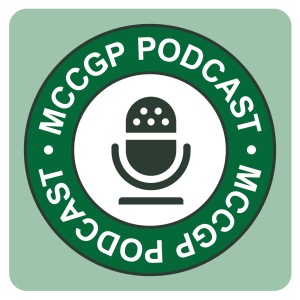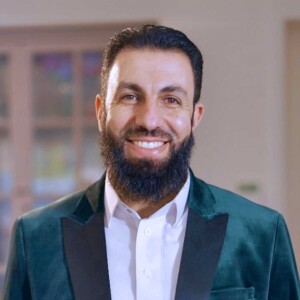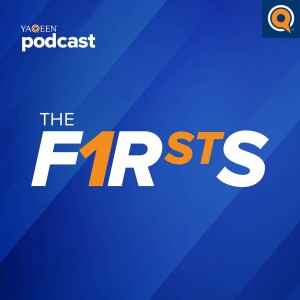

Allah tells us in the Holy Quran, ‘Know that there is no god worthy of worship except Allah.’
And the Prophet Muhammad (Allah bless him and give him peace) tells us, ‘Seeking knowledge is an obligation upon every single Muslim.’ (Ibn Majah).
Seeking sacred knowledge is seeking to know the Straight Path (al-Sirat al-Mustaqim) with greater clarity.
At least seventeen times a day we recite Sura al-Fatiha, praying: ‘Guide us to the Straight Path.’ The path of the Prophet Muhammad (Allah bless him and give him peace), Islam, is the straight and middle path that avoids the two extremes of negligence and excessiveness.
This noble way of life, Islam, is the path of submission. As the path of submission to the divine, Islam is about worshipping Allah on His terms, based on what He legislates and what He establishes as most important for us.
Islam is a path with priorities: what does Allah love most for me at any given time? What is most beloved to Allah for me right now? What are my priorities as a Muslim?
Because some things are more important than others, we must know what deserves our immediate attention and what is less of a priority.
In Islam, what we are obliged to know and do is either Fard ‘Ayn or Fard Kifaya:
1] Fard ‘Ayn—individually obligatory on every single Muslim.
2] Fard Kifaya—an obligation that falls on the community in general but not every single individual Muslim.
Fard ‘Ayn knowledge is the knowledge which every Muslim must know. It is obligatory for each and every one of us to know these things so that we can practice Islam with clarity and purpose.
Sadly, there are many gaps in people’s knowledge of Islam. In this age of ‘edutainment’—so-called ‘educational entertainment—and ‘inspirational YouTube talks,’ and so-called ‘inspirational Muslim social media stars,’ many Muslims confuse inspiration with knowledge; being ‘inspired’ versus ‘knowing with true insight’ that enables them to practice their faith with confidence.
Many Muslims know bits and pieces of Islamic history and scattered ‘Islamic trivia,’ but are woefully lacking in essential, core Islamic knowledge concerning what Allah and Messenger (Allah bless him and give him peace) have ordered them to know and practice.
To address this challenge, we are launching an ambitious new Fard ‘Ayn Certificate Program. This series is geared toward young adults, teenagers, mothers, fathers—everyone, since what we are learning is directly relevant and applicable to every single Muslim.
Through this Fard ‘Ayn Certification Program, our objective is to provide the community with knowledge that is both a religious duty to learn and immediately applicable to their life. Participants will be given the tools to take Islam beyond the classroom.
The modules will include:
• The foundations of the Islamic faith—an understanding of essential Islamic beliefs (‘aqida) which grounds a believer by knowing the attributes of Allah and His Prophets, as well as matters of the unseen, and how they transform our character and shape our worldview, giving us direction and purpose in this life.
• Knowledge of how Islam has been transmitted to us today—who is a scholar and what defines Islamic orthodoxy? How does one determine qualified scholarship? What are the various ranks of qualified scholarship and how do we seek sound answers to our questions that arise concerning Islamic practice?
• Foundational knowledge that grounds our practice of Islam—who has the right to legislate? What are the categories of Islamic legal rulings? From where do we derive our morals and understanding of what is right and wrong?
• The nuts and bolts of practicing Islam—the individually obligatory Islamic rulings concerning ritual worship (‘ibada), including:
- Purification
- Prayer
- Fasting
- Zakat
• The necessary knowledge concerning transactions (mu’amalat)—how we interact with others in the world, including:
- Buying and selling
- Common errors in business transactions
- Lawful and unlawful forms of trade
- Marriage (conditions, rights and responsibilities) - Divorce
- Child rearing - Responsibilities toward parents and relatives - Rights toward other human beings
• The lawful (halal) and unlawful (haram) in Islam—what we must know concerning worldly matters and what is permissible and what is impermissible, including:
- Food - Clothing - Entertainment
- Major Sins
- Minor Sins
- Prohibitions of the tongue
• Matters of the heart—how to purify and polish the heart, including: - The sins of the heart—their definitions, causes, and cures
- What illumines and purifies the heart—actions of the heart
- The inner workings of the self (nafs) and how to take account of one’s soul - The important of repentance (tawba) and its conditions We hope and pray will strengthen our knowledge of Islam and refine our understanding and practice, making us better believers and servants of Allah.
More Episodes
All Episodes>>Create Your Podcast In Minutes
- Full-featured podcast site
- Unlimited storage and bandwidth
- Comprehensive podcast stats
- Distribute to Apple Podcasts, Spotify, and more
- Make money with your podcast












